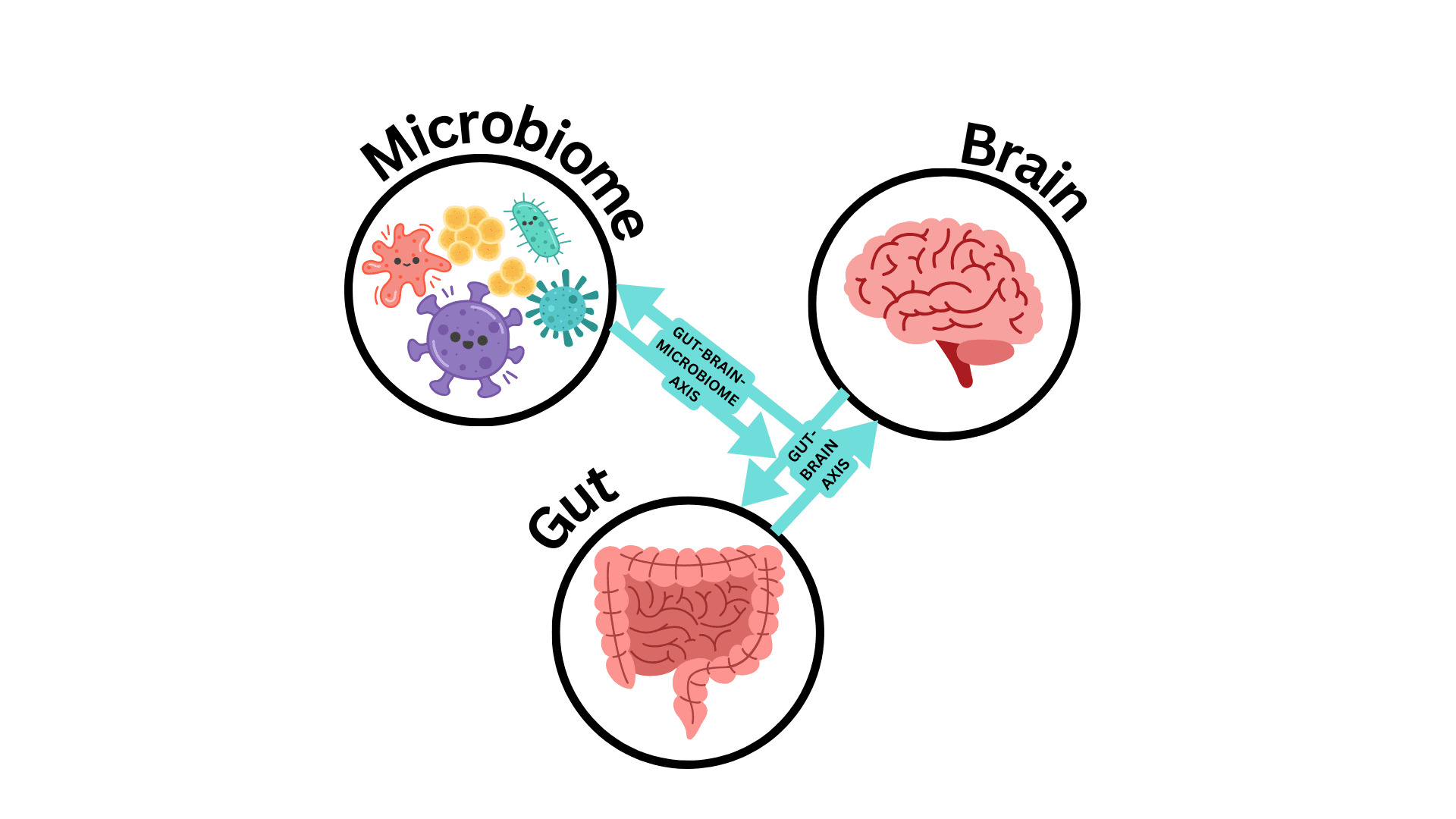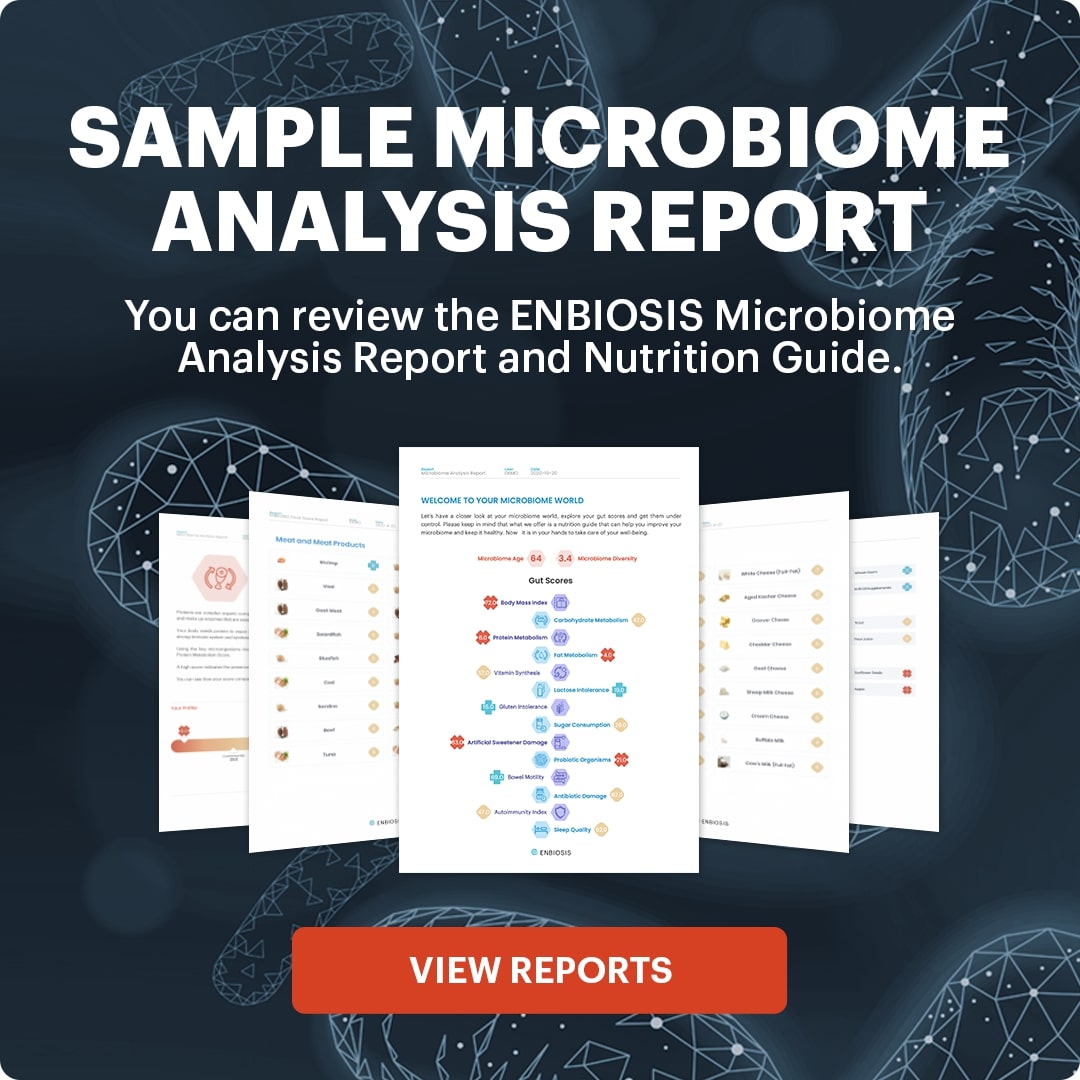For clinicians, understanding the gut microbiome is no longer optional – it’s essential. After all, this complex ecosystem of microorganisms plays a pivotal role in physiological processes throughout our whole bodies. Microbiome testing offers a powerful tool to unlock actionable insights for clinicians, allowing you to personalize treatments, address the root causes of illness, and guide patients toward optimal well-being. In this blog post, we’ll explore the practical applications of microbiome testing and how this can help to transform patient care and optimize outcomes within your practice.

Table of Contents
Latest Research on the Gut Microbiome: Implications for Health and Disease
The gut microbiome is a rapidly evolving research field, with profound implications for clinical practice. Microbiome testing offers clinicians new insights and therapeutic targets. Let’s take a look at some of the latest research findings in this area.
- Metabolic Health: Our gut microbiome influences several metabolic processes in our bodies, including the metabolism of short-chain fatty acids (SCFAs), vitamins, and carbohydrates. This means that disruptions in the microbiome, known as dysbiosis, are linked to metabolic diseases like obesity, type 2 diabetes, and nonalcoholic fatty liver disease.
- Gastrointestinal Health: Dysbiosis in the gut is also linked to gastrointestinal conditions, including irritable bowel syndrome (IBS) and Crohn’s Disease.
- Mental Health: There is a unique connection between our gut microbes and our brain. Research shows that gut dysbiosis can lead to inadequate production of neurotransmitters like serotonin and dopamine, contributing to mental health disorders, including depression and anxiety.
- Immune System Regulation: Researchers have discovered that our gut microbiome plays an important part in regulating our immune system. Therefore dysbiosis can lead to inflammatory diseases such as inflammatory bowel disease (IBD) and rheumatoid arthritis.
- Small Intestinal Microbiota: Although less well studied, the microbes in our small intestine are crucial for nutrient absorption, host metabolism, and immunity. Therefore, disruptions here can also influence the development of disease.
- Cancer and Other Diseases: Imbalances in our gut microbiome are also associated with various types of cancers, including colorectal cancer, and other conditions like autism spectrum disorder and chronic kidney disease.
Microbiome Testing: A Powerful Tool for Personalized Care
Gut microbiome testing is a highly valuable tool in modern clinical care. It helps clinicians to identify gut imbalances linked to various health conditions at an early stage, potentially before overt symptoms manifest. Once identified, these gut microbiota disruptions can be addressed through personalized interventions, improving patient outcomes.
Data obtained from gut microbiome analysis allows practitioners to tailor dietary recommendations, prebiotic and probiotic choices, and lifestyle modifications to address their patient’s unique microbial profile.
Some of the Clinical Applications of Gut Microbiome Testing
So, let’s now look at some of the specific ways that we can use gut microbiome testing within clinical care:
Managing Gastrointestinal Disorders
Personalized approaches can significantly improve the management of common gastrointestinal disorders, helping to enhance patients’ quality of life. Using gut microbiome testing, we can identify microbial imbalances contributing to various gastrointestinal conditions. This allows clinicians to move beyond generalized treatments and develop targeted interventions tailored to the individual’s needs. This could include specific dietary modifications and prebiotic and probiotic recommendations, all aimed at restoring gut health.
Our recent clinical studies have demonstrated the efficacy of personalized diet plans (designed based on ENBIOSIS’s AI-powered gut microbiome analysis) in improving symptoms of both Irritable Bowel Syndrome (IBS) and functional constipation.
Personalized Nutrition
Personalized nutrition can help to manage chronic conditions, enhance overall health, and reduce the risk of diet-related diseases by making sure that every nutrient intake decision is specifically suited to your body’s unique needs. Practitioners can use information obtained from gut microbiome testing to create tailored dietary recommendations that optimize digestion, boost immune function, and potentially prevent diseases. By addressing individual variations in metabolism, nutrient absorption, and disease risk, precision nutrition can significantly improve patient outcomes.

Longevity and Healthy Aging
Researchers are revealing an interesting connection between our gut microbiome and aging and longevity. This is another area where gut microbiome testing can make a significant impact. Microbiome testing can identify age-related shifts in the gut microbiome. These tests can reveal changes in the abundance of specific bacterial taxa and functional pathways that are associated with aging. Remember, we can only address these imbalances once we know about them.
Mental Health
Given the well-known links between our gut and brain, microbiome testing can also be a powerful tool in this context. By analyzing the composition of gut bacteria, gut microbiome tests can identify imbalances or specific microbial profiles associated with mental health issues. For instance, research shows that gut dysbiosis is related to several mental health disorders, including anxiety and depression. Interestingly, certain dietary components, such as common probiotics and prebiotics can protect against specific mental health disorders. Therefore, by incorporating these beneficial elements into our diet, we can potentially improve our gut health and support better mental well-being.

Other Clinical Applications
Microbiome testing also shows promise in several other clinical areas. For example, research studies suggest that the composition of our gut bacteria can affect the way we regulate our weight. Therefore, modifying our gut microbiome through lifestyle interventions (informed by microbiome testing) can help us to achieve and maintain a healthy weight.
Additionally, microbiome testing shows potential in managing autoimmune diseases, such as rheumatoid arthritis, by identifying bacterial imbalances that may trigger inflammatory responses. Furthermore, as metabolic disorders such as type 2 diabetes are influenced by gut bacteria, tailored interventions could improve these conditions.
How Can ENBIOSIS Provide Microbiome Insights for Clinicians?
At ENBIOSIS, we provide clinicians with an AI-powered gut microbiome testing service that can enhance and streamline patient care. Our innovative gut microbiome analysis offers easy-to-interpret and actionable dietary insights, based on our proprietary food recommendation algorithm. This algorithm calculates optimal priority scores for various foods to promote a balanced gut microbiome. It also allows us to determine the most suitable probiotic and prebiotic options for unique gut profiles.
Contact ENBIOSIS today to find out more about how you can use gut microbiome analysis to enhance your practice.


